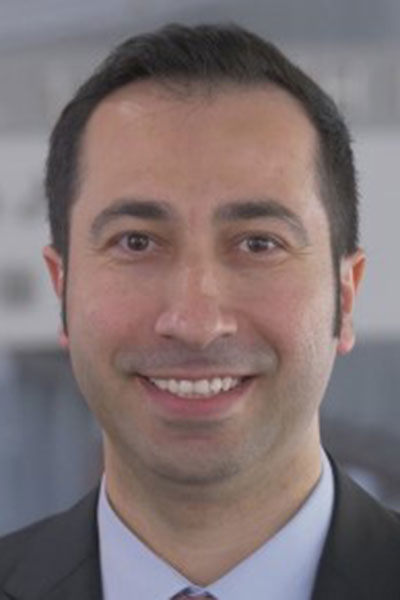Type 1 diabetes does not exist in a bubble, and other conditions may be part of the diabetes pathology. The symposium Type 1 Diabetes through Another Lens—Lessons from Other Disease Settings addressed other diabetes pathologies and how they can be tested and monitored.
The session can be viewed by registered meeting participants at ADA2023.org. If you haven’t registered for the 83rd Scientific Sessions, register today to access the valuable meeting content through August 28.

Arabella Young, PhD, Assistant Professor of Microbiology and Immunology at the University of Utah, discussed type 1 diabetes pathology revealed through immune checkpoint inhibitor-induced disease in animal models, and Halis Kaan Akturk, MD, Assistant Professor of Medicine and Pediatrics at the Barbara Davis Center for Diabetes at the University of Colorado and the Communications Director of the American Diabetes Association® (ADA) Diabetes Technology Interest Group, discussed type 1 diabetes pathology revealed through checkpoint inhibition in cancer.
Dr. Akturk acknowledged the significance of the discovery of cytotoxic T-lymphocyte-associated antigen 4 (CTLA-4) and programmed death 1 (PD-1) immune checkpoints and their role in cancer immunology. However, autoimmune-mediated diabetes presenting with diabetic ketoacidosis can be rapidly induced with therapies that block PD-1 and programmed death ligand-1 (PD-L1).
Patients receiving immunotherapy for cancer who also had immune-related adverse events may also have had specific human leukocyte antigen (HLA) class II genes, he reported.

“With increasing use of these state-of-the-art therapies, health care providers and patients need to be aware of this side effect,” Dr. Akturk said.
Screening strategies are needed to minimize this unwanted side effect, and the use of continuous glucose monitoring (CGM) with the start of therapy may aid in early diagnosis and treatment, he said.
More in-depth analysis of immune checkpoint-induced type 1 diabetes genetics could be used to create a genetic risk score, Dr. Akturk concluded.
Martin Thelin, MD, PhD, Pediatric Endocrine Fellow at the University of California San Francisco Diabetes Center, provided findings from his research into type 1 diabetes in primary immunodeficiencies.
There are more than 500 identified monogenic primary immune deficiencies. Recently, there has been interest in signal transducers and activators of transcription (STAT) proteins and autoimmune disease. Many STAT proteins have been linked to autoimmunity and infections.

Monogenic primary immunodeficiencies can cause type 1 diabetes, and it often can go unrecognized in patients in the clinical setting, Dr. Thelin explained. Proteins STAT1 and STAT3 in particular have been linked to type 1 diabetes.
Dr. Thelin studied a nonobese diabetic (NOD) mouse model that had STAT1 gain of function crossed with the diabetes-specific T-cell receptor (TCR) transgene BDC2.5. That unique mouse model developed diabetes at a faster rate compared to wildtype mice and expressed fewer regulatory T-cells.
“STAT1 gain-of-function mutation potentially leads to dysfunctional regulatory T-cells due to decreased expression of CD25,” he said. CD25 is an essential molecule in immune responses.
Dr. Thelin hopes to take his research further to discovery of novel, targetable pathways by studying patients with unusual presentation of type 1 diabetes.

Edwin Liu, MD, Professor of Pediatrics at the University of Colorado and Director of the Colorado Center for Celiac Disease, discussed type 1 diabetes and celiac disease (CD), which is an autoimmune disease triggered by gluten that results in injury to the small intestine and other organs. HLA-DQ genes are major risk factors for CD, as well as for type 1 diabetes.
“Type 1 diabetes and CD are partners in crime,” Dr. Liu said. “There is shared comorbidity. … And about 8% of those who have type 1 diabetes will develop CD.”
The two are also good partners for research, as several large studies related to type 1 diabetes have been considerate enough to include CD results, which has been tremendously helpful, he said.
Where the partnership is strongest is in mass screening, Dr. Liu said. He highlighted the Autoimmunity Screening for Kids (ASK) research program, which offers free screenings to all Colorado children ages 1-17 to detect type 1 diabetes and CD. It has recently gone national in the U.S, and more information can be found at ASKhealth.org.
“We hope that these efforts to affect national policy on mass screening for CD will hopefully keep up in parallel to those efforts for type 1 diabetes,” Dr. Liu said.
There are presently no drugs for CD, but there are several in the pipeline that follow every pathway for CD, which could provide insight into diabetes therapeutics.